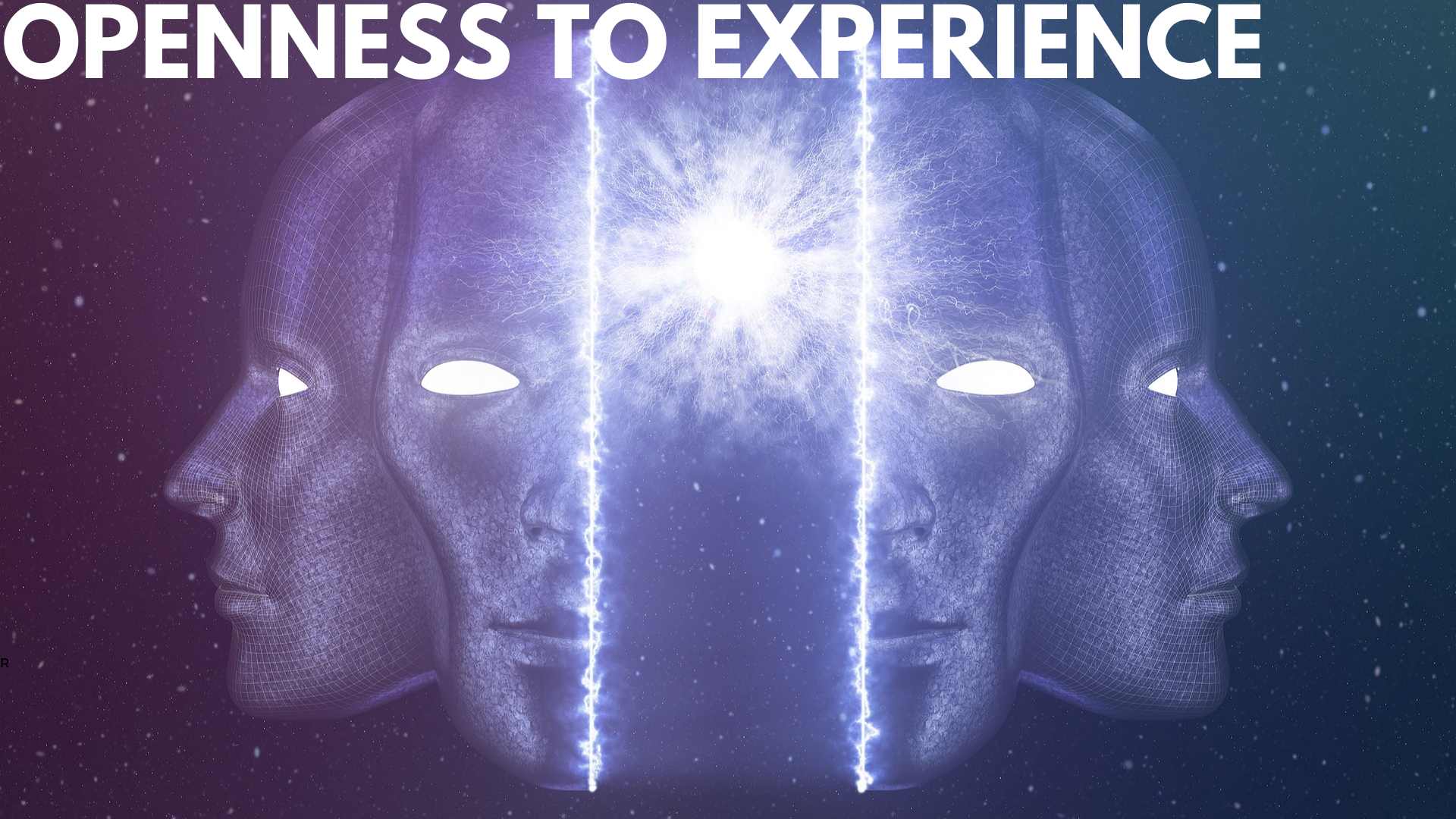If you like fantasy, wacky things like anime, or respond quite emotionally to art or music, you might be high in trait openness.
Chances are, you feel a bit like a weirdo at times. Likely, you’re creative, open-minded, explorative, imaginative, abstract-minded, and higher in emotionality.
Open types are entrepreneurs, challengers, disruptors. They see the established hierarchy and consider how it might be different, hopefully better.
Vive la revolution!
This is why liberals (who are usually higher in this trait) often complain about conservatives being stuck in their ways. We can’t always remain where we’ve been. Evolution, growth, adaptation – these things all require something new, and therefore require us being open to trying something new.
However, just because you can do something, doesn’t mean you should.
High standards much?
Let’s take romance for example.
Interestingly, open folks are more likely to delay romantic commitment, probably because they’re always imagining “what’s out there.”
It could also be because open personalities have difficulty connecting with someone who’s more straight-forward and simple. I suspect that open types struggle with feeling like others “get” them, and want someone else who matches their trait (see the referenced study above; apparently there’s quite a bit of research confirming this).
While there’s nothing wrong with preferences, and it’s probably wise to pick someone who “gets” you, you can see how this more open mindset could get in the way of establishing long term, committed relationships. Lo and behold, those high in openness report higher levels of infidelity and relationship dissatisfaction. They’re also more likely to be sexually explorative.
Open brains are higher in what’s called plasticity. This is what makes them creative – they can go new places and imagine new things – and they like to! But just as flexible materials sacrifice strength for movement, so open temperaments come with the risk of chaos. Stability is sacrificed for potential.
For open personalities, stability is sacrificed for creativity and potential.
Ruin comes when creativity or exploration are left unchecked.
Practically speaking, while plasticity can mean creativity and adaptability, it may also put you at risk for leaving behind the things of their life that provide stability, relationships or otherwise. Just think of all the rock stars and creative celebrities that have ended up in rehab clinics.
Curiosity killed the cat, so they say.
Sacrificing what could be
As we’ve seen, one of the tasks of self-discovery and personal growth is to understand our weaknesses and bring balance to our temperament. In the case of open types, this may mean practicing boundaries, discipline, and even rigidity.
The sacrifice for open personalities is the potential pleasure of novelties that risks destabilizing one’s life. This is not suppression – that doesn’t work. It is the channelling of gifts and felt needs to the right places. Despite felt needs, sacrifices need to be made for a healthy, stable life.
In the words of Mick Jagger, you can’t always get what you want.
Boundaries: Learn to love ’em
Here are a few practical thoughts for you open folks:
- Think about your future realistically. If you jump from relationship to relationship or job to job, you may find yourself twenty years down the road with nothing to show for yourself. Anything beautiful takes time and consistency to develop. People do this with marriages. Not that I’d know, but any person who’s happily married long-term will tell you that there were hard or boring seasons. Yet many older couples say that their partner is the best thing about their life. That sort of thing doesn’t “just happen,” as much as your romantic temperament would love it to be so.
So be realistic: use your high creativity to imagine the life you want. Make sure you’re moving in that direction with some clear goals, and a plan to get there. But imagine also the life you want to avoid. What would happen if I kept moving from partner to partner, job to job, for the next 5, 10 or more years? If I let myself wander into “dangerous lands”?
Fear is a good motivator, within reason. Use it to give your future some boundaries and goals which will serve as anchor points. You can always change them if you need to. Chances are, they’ll evolve. But you’ve got to have something you’re aiming at, and that means sacrificing some other possibilities, at least for a time. - Explore where appropriate; use boundaries where wise. One thing I’ve never let appeal to me is drugs. I just know they would devastate me and I see absolutely no value in them. But I have other areas where I let my creativity flow freely. In my journal, I’ll write whatever comes to mind or heart. Some of the poems I’ve written will never see the light of day. Some of my hobbies will never amount to anything but a few fun experiences. I make wild jokes with safe friends. So what? There’s not a lot to lose with safe hobbies like journaling or artistry. These creative activities, and hopefully some meaningful, slightly risky ones (like writing publicly) can provide the outlets you need for your creative, open self. But those other areas you know are major temptations or destabilizers? Cut them out of your life. Mercilessly.
I also recommend finding little things where you can practise limiting your options and practising self-control. Charles Duhigg calls these “keystone habits.” They’re keystones because they are essential pieces to the structures of our lives, and having a strong keystone will reinforce the rest of your life. Discipline in these (seemingly) small areas will pay dividends elsewhere. - Pick a stable career and find outlets for creativity. Some of the best advice I’ve found in recent years of career transition was this: pick a stable job, creative or not, and turn your desired creative work into a side gig. That’s why I’m in school for psychotherapy but working on making writing something I can monetize. If I do one day, awesome. If not, psychotherapy pays the bills (and is creative in its own ways, so that’s a plus!).
I absolutely love my high-openness. You wouldn’t be reading this blog if it weren’t for my love for ideas and creative expression. But as we’ve been saying, our lives need balance. If you’re really open, your “balance” is to try being a little more “closed”. Good luck.
This post is part of a series. Check out the following as you dig deeper into your personality.
Agreeableness: The Niceness Problem
Conscientiousness: The Perfectionism Problem
Openness: The Chaos Problem
Neuroticism: How to Manage Negative Emotion
Extroversion: The Bad Side of Bright Personalities
If you liked this post, consider sharing with the buttons below or subscribe to my newsletter for future updates!






